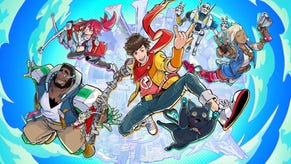Hand Circus' Simon Oliver
The Rolando developer on PSN, indie power and what's changed about the App Store
I think it's simply because there's just so much opportunity there. People will always try and make the most of that opportunity. That will go across the board in terms of the designs of the games. There will people who design something purely to try and maximise opportunity, and at the other end of the scale there will be people who are purely excited by the new mechanics made possible by those new platforms.
Generally there will be people in the middle who want to create games which are fun, unique and very high quality but at the same time taking advantage of opportunity. I think that's a really nice place to be in. Somewhere you can marry the two from a commercial and creative perspective.
A lot of tech commentators are predicting a dramatic shift away from desktop computers to mobile for the majority of their online activity, certainly for personal use, and I can definitely see parallels for gaming with a shift from TV/PC to handhelds.
Assuming that is the case, there will naturally be an increased appetite across the board, from super-casual to core, and at the core end an increased demand for games that offer a comparable experience to the 360 or PS. It certainly looks like Sony are positioning the PSP2 at the core end of the market - it definitely makes much more sense for them to operate in that space rather than going head to head with the iOS/Android as they can really differentiate on quality.
I think you only need to look at the Tim Langdell case to see what can happen at the other end of the spectrum. When people are able to squat on a trademark, to abuse the system to that extent, you can see how it might work if more restrictive controls were implemented.
It's really really hard. There's no right answer to whether you need to have more robust controls, especially in an area that's moving so quickly. There's definitely an ethical responsibility not to completely rip off someone else's work, but I'm very keen to avoid a situation where there's that level of protection so that we don't spawn a thousand Tim Langdells, or when we get the sort of situations which you do in the US with patent trolls sitting on an idea and creating companies to purely exploit intellectual property.
Well, you'd hope that this would come out amongst consumers, you'd hope that if a company has a reputation for bad business practice, that would trickle down and give them a bad reputation with consumers.
I think that certainly the new platforms have done a lot to help. The iPhone was certainly a trailblazer in that respect. The barrier to entry was so absurdly low. At the same time, when the 360 and PS3 came onto the scene, you could really purchase downloadable console games for the first time. As that continued to create a market for other consumers to buy different games, that in its own right has increased confidence.
I think the appetite for developers to create something has grown as they've seen the success of titles like Braid, World of Goo. Some of the headline that came out at the time of the launch of the App Store, people making huge sums of money, from very small teams, I think that has, for better or worse, made a lot of people quit their day jobs.
I think the reality is probably slightly different to those headlines, but I think that's probably a contributing factor. Plus, obviously, a lot of large studios have made some quite significant redundancies - so those people who have had redundancy settlements, and time on their hands, alongside a network of great people, made a decision to pursue development. I think that there's a number of factors.




-(1)_16x9.png?width=291&height=164&fit=crop&quality=80&format=jpg&auto=webp)



